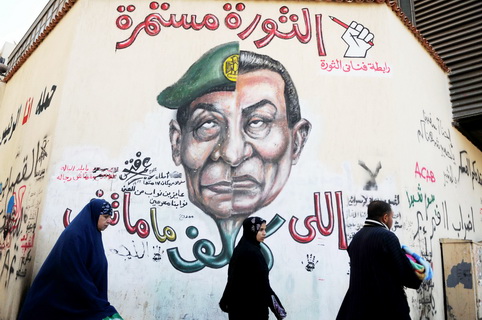At least 363 civilians have been referred to military trials in two days on charges of belonging to the Muslim Brotherhood and engaging in violent incidents during protests.
Prosecutor General Hisham Barakat referred 325 suspects accused of violence in the governorate of Minya on 15 March. Charges included the storming of the police station and burning down the city council building of the Mallawi district back in August 2013, state-run media newspaper Al-Ahram reported. In January 2015, 250 others were referred to military trial accused in similar incidents around the same time, also in Minya.
On 16 March, Al-Ahram reported that 38 other civilians were also referred to military court in Menufiya for violent protests and incitement against the state in 12 lawsuits.
As for recent verdicts by the military judicial institution, 17 were sentenced to prison terms ranging from five years to life sentences in the governorate of Daqahleya. All defendants, bar three, were sentenced in absentia.
The following day, also in Daqahleya, the military court handed out prison verdicts to 23 students of Mansoura University in three cases related to protests and violence. Sentences varied from two to 10 years in prison and a fine of EGP 50,000 each.
The practice of military trials on civilians has been widely criticised by human rights advocates, especially after its increasing application for university students.
In December, a team of human rights lawyers from the Egyptian Center for Economic and Social Rights (ECESR) prepared a paper appealing the referral of a 19-year-old to military trial. They argued that the constitution also guaranteed the right to a fair trial for citizens in civilian courts, and that the exceptional referral to the military courts were unjustifiable.
On the other hand, the state expanded the role of the military courts by presidential decree, adding crimes that endanger the security of vital facilities to be referred to military courts.
Between the law’s passing in October 2014 and today, the number of civilians referred to military trials is estimated to exceed 2,000 according to a member of the independent movement “No to Military Trials”.
Lawyer Ahmed Heshmat, a member of the movement and the NGO National Community for Human Rights and Law, wrote in a research paper last January that the history of military courts finds its roots in the Pharaonic era.
Heshmat referred to the judicial “Papyrus of Turin”, which is believed to have been written in the Twentieth Dynasty (12th century BC).
“The document proves that the military judicial system was in place settling conflicts involving army personnel,” Heshmat wrote. “In a conflict related to a piece of land in Thebes, it is believed that the court ruled in favour of the non-military party. The court was composed of the ‘governor’ and some military figures.”
Heshmat further traced the establishment of military courts in 1884 under a decision issued by Khedive Tawfik. They served the purpose of putting on trial the revolutionaries that had participated with his opponent, Colonel Ahmed Orabi who rebelled against the khedive.
Both the khedive’s and Gamal Abdel Nasser’s laws on military jurisdiction were based on the British model, according to Heshmat. Nasser changed the khedive’s law with Law 25/1966. Then Hosni Mubarak established the Supreme Military Appeals Court. Military trials were included in the 2012 constitution.
Two lawsuits were filed before the administrative judicial branch of the State Council against the October presidential decree categorized under Law 136/2014, Al-Ahram said.
Lawyers behind the lawsuits demanded that, instead of assigning military courts to look into attacks on vital institutions, the Armed Forces and police authorities coordinate together in securing them.
Hoping to obtain a court verdict annulling the military courts special role in such cases, lawyers who appealed the law argued laws regulating which judicial division civilians face in such cases should not be vague. They demanded the Ministry of Defence specify which institutions fall under military responsibility.
On 26 January, an administrative court refused to look into the case of four defendants accused of attacking public facilities in Beheira governorate. They said this was on the grounds that it was the specialty of military court, state-run news agency MENA reported.
The constitution initially assigned military judiciary to crimes involving army and intelligence service personnel but allowed military trials for civilians for crimes that represent direct assault on military facilities. The article included a wide range of military belongings including documents, public funds, or military secrets.
The constitutional article also left an open space for the law to identify these crimes and determines the other terms of reference of the military judiciary.
